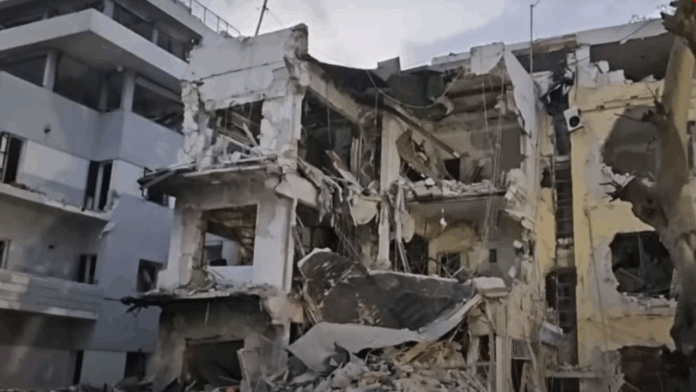In a dramatic escalation of hostilities in the Middle East, Iran fired a wave of missiles at Israel on Friday night, targeting key locations near Jerusalem and Tel Aviv.
The strike, which Iran claimed was in direct retaliation for Israel’s recent airstrike on its Natanz nuclear facility, marks one of the most intense military exchanges between the two countries in recent years.
According to the Israeli military, Iran launched fewer than 100 missiles, most of which were intercepted by Israel’s Iron Dome defense system. However, several missiles broke through the defenses, striking buildings in civilian areas and injuring dozens. Emergency services responded quickly, with hospitals in Tel Aviv and Jerusalem treating the wounded.
Iranian state media presented a contrasting narrative, claiming that “hundreds” of ballistic missiles had been launched. This response, Tehran said, followed the killing of senior Iranian military commanders in what it labeled as “Israeli aggression.”
Iranian authorities stated the strike targeted critical infrastructure, including the Israeli Ministry of Defense headquarters, confirmed Fox News.
“This is just the beginning of our response,” Iran’s Supreme Leader Ayatollah Ali Khamenei declared in a televised address, blaming Israel for “starting a war” and vowing that the Islamic Republic would retaliate further if provoked.
“They cannot strike us without consequence,” he added.
Meanwhile, Israeli Prime Minister Benjamin Netanyahu, in a press conference following the attacks, remained defiant.
“We will continue our operations to ensure Iran never acquires nuclear weapons.”
“Our resolve is unwavering, and we will defend our people by any means necessary,” he said.
As of Saturday morning, Israel remains on high alert for possible additional retaliatory strikes. Military reserves have been partially mobilized, and air raid sirens have been activated in multiple cities. The international community is urging restraint, with the United Nations and several world leaders calling for de-escalation to prevent a full-scale regional conflict.
The situation remains fluid, and both nations are signaling that they are prepared for further action. With diplomatic channels under strain and military posturing intensifying, the coming days will be critical in determining whether this exchange marks a turning point or a step toward a broader war.



